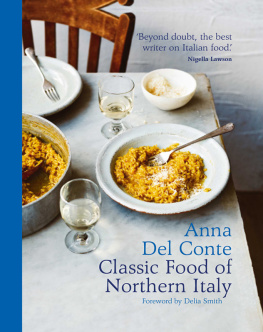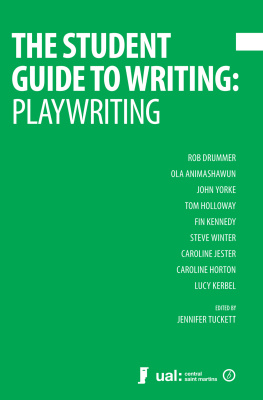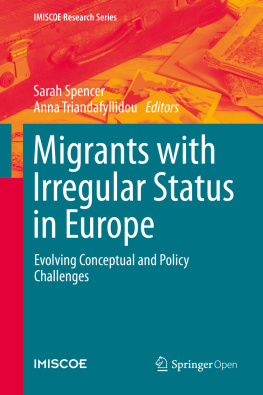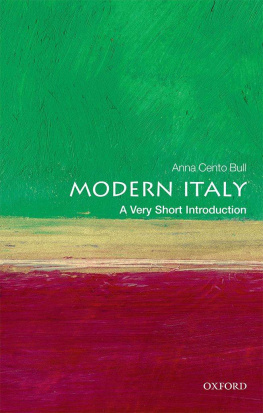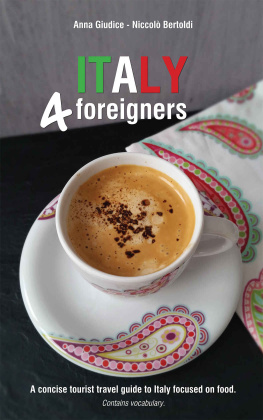Stanford University Press
Stanford, California
2018 by the Board of Trustees of the Leland Stanford Junior University. All rights reserved.
No part of this book may be reproduced or transmitted in any form or by any means, electronic or mechanical, including photocopying and recording, or in any information storage or retrieval system without the prior written permission of Stanford University Press.
Printed in the United States of America on acid-free, archival-quality paper
Library of Congress Cataloging-in-Publication Data
Names: Tuckett, Anna, author.
Title: Rules, paper, status : migrants and precarious bureaucracy in contemporary Italy / Anna Tuckett.
Description: Stanford, California : Stanford University Press, 2018. | Includes bibliographical references and index.
Identifiers: LCCN 2018003994 (print) | LCCN 2018005224 (ebook) | ISBN 9781503606500 (ebook) | ISBN 9781503605404 (cloth : alk. paper) | ISBN 9781503606494 (pbk. : alk. paper)
Subjects: LCSH: ImmigrantsItalySocial conditions. | Emigration and immigration lawItaly. | ItalyEmigration and immigrationGovernment policy. | BureaucracyItaly.
Classification: LCC JV8132 (ebook) | LCC JV8132 .T84 2018 (print) | DDC 325.45dc23
LC record available at https://lccn.loc.gov/2018003994
Cover design: George Kirkpatrick
Rules, Paper, Status
Migrants and Precarious Bureaucracy in Contemporary Italy
Anna Tuckett
Stanford University Press
Stanford, California
To Ibrahim and the next generation
Contents
Acknowledgments
Without the generosity, openness, and support of many people in both Italy and London, this project would not have been possible. I regret that I cannot name them all. I am deeply indebted to staff members and regular clients at the advice center who shared their stories with me and tolerated my endless questions. Outside of the center I am very grateful to Manuela Alfieri, Chiara Candini, Angela Giancristofaro, and Claudio Negri for welcoming me into their lives and sharing them with me. Thank you also to Ledia Andoni and Valmir Dibra.
The project on which this book is based was funded by a U.K. Economic and Social Research Council Studentship, and by further research studentships from the Newby Trust and the London School of Economics. I am very grateful for this generous assistance. Sections of revised material in this book appeared in articles published in Focaal and Critique of Anthropology.
At the London School of Economics (LSE) I am indebted to many people. I am extraordinarily grateful to my supervisors, Deborah James and Mathijs Pelkmans. I thank Deborah not only for her meticulous attention to my chapters (and patience with my writing), but for always pushing me in the direction I want to go and helping me get there. Mathijs supported this project since its beginning, and I am grateful for his challenging advice, which both guided and inspired me throughout. I also thank the conveners and participants in the LSE writing seminars 201113. Thanks to my current colleagues on the Ethnography of Advice team for their useful comments during our book writing workshop.
The feedback of many friends and colleagues both at LSE and beyond was invaluable at various stages of this books development. I am grateful to Tony Good and Ralph Grillo for their detailed and insightful comments. Thank you to Rita Astuti, Laura Bear, Max Bolt, Ryan Davey, Matthew Engelke, Ana Gutierrez Garza, Insa Koch, Giulia Liberatore, Bruno Riccio, and Alpa Shah. I also wish to thank Adam Kuper for his encouraging and useful comments. The books peer reviewers provided highly valuable, detailed, and thoughtful feedback.
Warm thanks to Stanford University Press. I am very grateful to Michelle Lipinski for her enthusiasm and support and to others at the press for their help in finalizing the manuscript.
My family has been tremendously supportive. I am deeply indebted to my parents, Lesley, David, and Paola, for their constant support and encouragement over the years. Matt Wilde was an enormous influence on this book. His enthusiasm, interest, patience, and care kept me going during my hardest and most frustrating moments. I am deeply grateful not only for his tireless proofreading, but also for his support in helping me to develop and articulate my ideas. Thank you also to our son Gwyn for his patience with my one-armed breastfeeding while I put the finishing touches on the manuscript in the first weeks of his life.
Last, I thank my second family in Italy: Anna, Mohamed, and Ibrahim. Anna profoundly influenced this book and is an inspiration to me.
Glossary
amnesty/sanatoria/emersione. Amnesty is a law that regularizes employed illegal migrants on Italian territory. The 2002 amnesty allowed undocumented migrants in all occupations to regularize their status. A further amnesty in 2009 was introduced but this time was designed to legalize only domestic workers. In common parlance, both amnesties were referred to as the sanatoria or emersione.
Bossi-Fini law. The current immigration law in Italy. It was introduced in 2002.
carta didentita. Identity card. All those legally living in Italy (Italians and non-Italians) are required to have an identity card. Italian citizens may use it as a travel document, but non-Italian citizens may not.
carta di soggiorno. Card to stay, also known as permesso di soggiorno di lungo periodo (long-term permit to stay). The long-term permit is valid indefinitely unless a migrant is convicted of a criminal offense.
comune. Municipality.
contratto di soggiorno. A work contract that migrants from non-European Union (EU) countries must hold and present when renewing their permits.
decreto flussi. An accord between the Italian state and sending countries. It allows for the legal entry of workers who are desired by employers in Italy.
kit. This is the name of the application form for immigration permitrelated applications.
permesso di soggiorno. Permit to stay. The permit that non-EU migrants must hold to live legally in Italy. It usually lasts for two years.
prefettura. The prefecture, which plays a role in the process of family reunification and citizenship applications
questura. The police headquarters in which the immigration office is situated. Permit applications are processed here.
Introduction
Extract from fieldnotes, December 2009
I arrive at the questura (the immigration office) at 7:45 a.m., much later than everyone else. The entrances steel gates are open, revealing a concrete slope leading up to the long and flat immigration office building situated at the police headquarters. Metal barriers snake around the slope, forcing people into an orderly but bulging line as they wait for a police officer to hand out numbers. The numbers are for appointments to collect permits, submit applications, and various other processes and procedures. From the size of the queue, it is evident that people started to arrive some time ago. It is freezing, although there is some warmth created by the large number of people crammed inside the barriers. There are all sorts of people waiting: old, young, and groups of families with small children and strollers. Most people are tightly clasping plastic folders filled with paperwork.
At 8:00 a.m. a policeman emerges. His manner is aggressive as he waves the raffle-style tickets in the air and asks people to calm down and stop pushing; he has plenty of numbers to distribute, he states. Confusion is paramount, as people are unsure what the ticket numbers refer to. At one point the policeman says the tickets he is distributing are only for the afternoon. I repeat this to Ahmed, an Algerian man who is standing next to me in the queue, but he seems to think otherwise.


